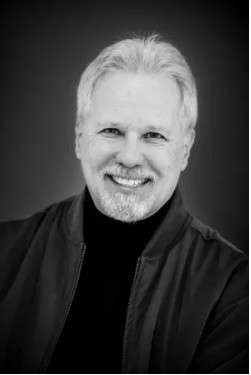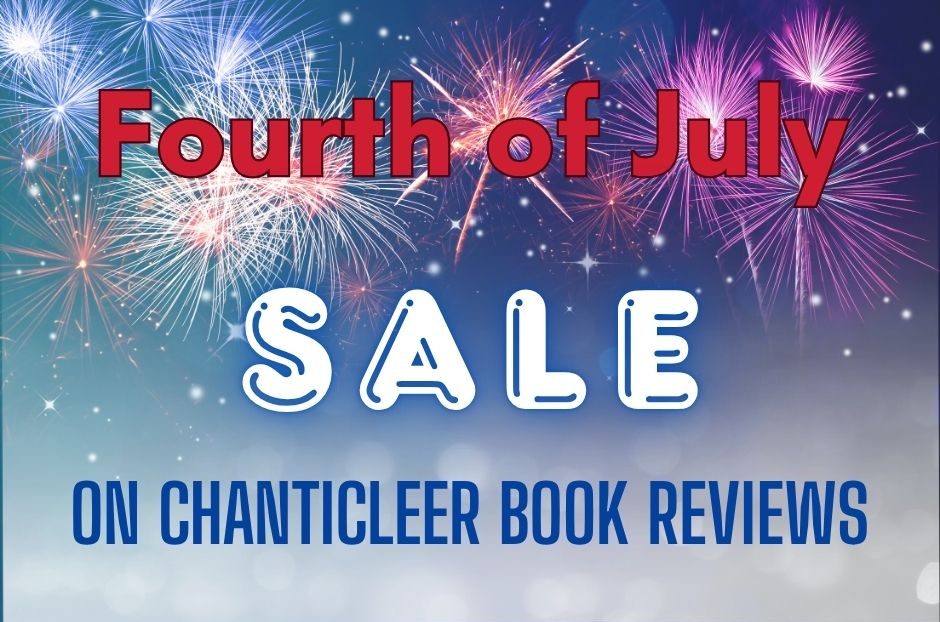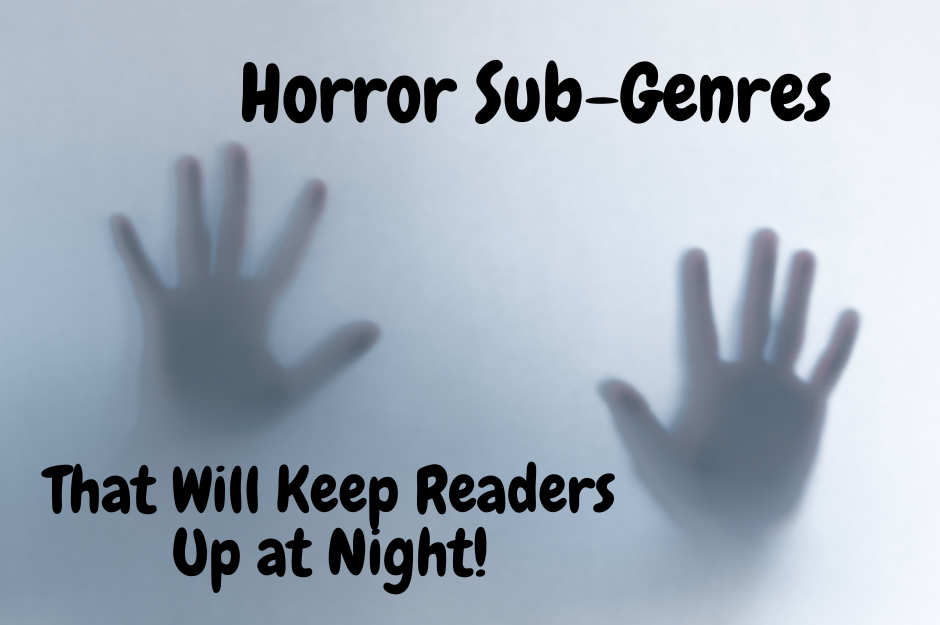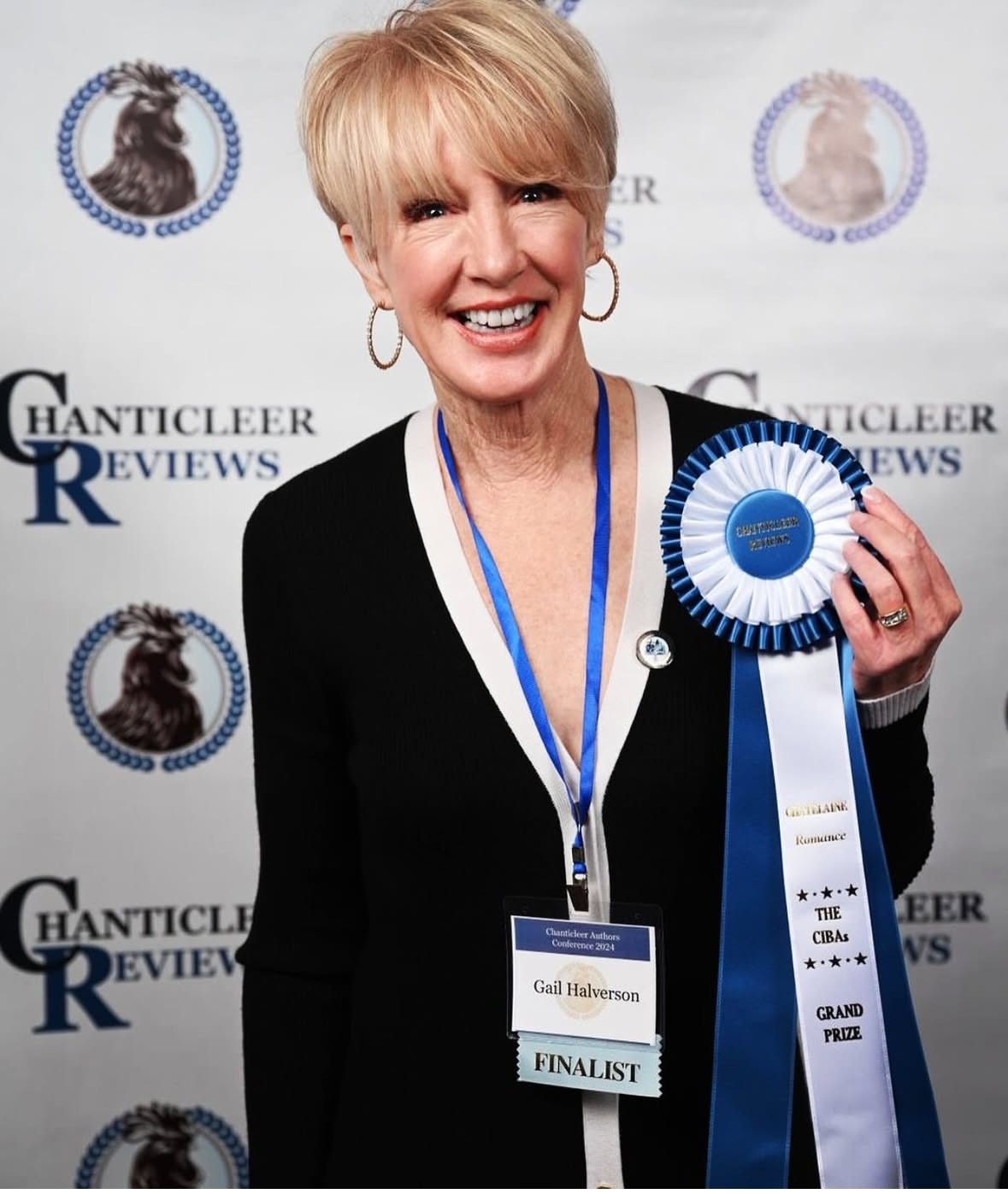|
Listen to or download this article:
|

 Science Fiction award-winning Author Timothy S. Johnston sat down for a 10-Question Interview with Chanticleer!
Science Fiction award-winning Author Timothy S. Johnston sat down for a 10-Question Interview with Chanticleer!
Recently, Chanticleer had the pleasure of speaking with Timothy S. Johnston, author of both The Rise of Oceania and The Tanner Sequence series. His latest book, The Shadow of War-the latest in The Rise of Oceania series, took home the 2023 Cygnus Grand Prize for Science Fiction. Johnston is an award-winning author and literacy advocate and I know you’ll enjoy learning more about him and his thrilling novels!
Here’s what we talked about:

Chanticleer: Your passion for storytelling shows through in your writing. When did your love of storytelling begin?
Johnston: It came from a love of stories when I was a child. It didn’t matter what format or media; I just loved a good story. I still feel today that a good story has a great power to heal. Escapist entertainment is crucial, and everyone can use more in their lives. It serves a valuable purpose for us as human beings—as a way to escape our lives, the daily grind, our worries and anxiety. Escapism has the power to take away our pain. When I was seventeen years old, after years of reading great books—everything from Edgar Allan Poe to Asimov, Crichton and Agatha Christie—and watching gripping genre films from directors like James Cameron and Steven Spielberg, I knew that writing was what I wanted to do. I wanted to contribute to the genre and provide escapist entertainment for people. I set my sights on this goal and…
It took me twenty-five years to actually achieve it. My first book deal was for The Furnace, which I landed when I was forty-two. It was a quarter century of rejection, but it was important because during that period I was learning the craft. I was improving and studying the entire time. I accumulated hundreds of rejections during that period, and I had five books completed on my hard drive when I finally landed the deal with Carina Press. But since then, I haven’t looked back. Fitzhenry & Whiteside just published my ninth book, A Blanket of Steel.

Chanticleer: That persistence really paid off! I love that you framed the journey as essential to mastering your craft. Speaking of craft—how did you decide on your genre?
Johnston: The genre I write is TechnoThriller or Science Fiction Thriller. I write thrillers that take place in unique and dangerous locations. There is always a technological component to them, and the settings are unique and dangerous. However, they are all grounded in reality. I don’t write aliens (yet) or concepts that are too outlandish. I want to capture that mainstream audience and keep them entertained and interested in a story that could really happen. One full of tension, twists, and turns. A rollercoaster ride, if you will. I love stories that involve horror, thrills, suspense, and characters on the verge of death or disaster. I want massive stakes and tremendous villains in my stories. I also want mystery, and some gruesome violence is always good. This is what I write, and I love it!
I also want to increase diversity in my writing. I am most proud of The Shadow of War because it includes a Muslim woman as a star in the ensemble. I feel that Muslim women are often relegated to the background, as the wife or daughter perhaps, and in this book, I wanted to bring my character, Sahar Noor, right to the forefront and make her an integral part of the story. I wanted her to be a powerful and important element of the narrative—necessary to the plot—and a person who helped control and dictate events. In the book, she is a popular politician, and in fact, a celebrity. The novel is a grand heist spanning the world and is so much fun. I loved writing it. Sahar is one of the greatest characters I have created, and I am so proud of her, and I’m thrilled that the book won the 2023 CYGNUS Award Grand Prize! It fits into the TechnoThriller genre, but it’s a climate-themed (Cli-Fi) adventure as well.
Chanticleer: Sahar Noor sounds like such a compelling character! We love seeing authors push for representation in genres where it hasn’t always been prioritized. The underwater elements in your books are riveting and make me think of The Expanse. How do you come up with ideas for these unique plots?
Johnston: I love stories in many forms. I love movies, TV, books, and narrative-driven Sci-Fi/Horror video games. I soak up everything I can get my hands on. In my creative formative years, I developed a love for a certain genre and style. I would seek it out anywhere I could find it. All those stories played a role in my creative process. I want to honor everything that’s come before, while also breaking new ground. I want to make the reader feel comfortable with the genre and plot at first, but also hit them with things they’ve never experienced or even thought about before. The Shadow of War is a great case in point. In many ways it feels comfortable because it’s a heist. It’s covert espionage, which people enjoy. But it’s also about a group of people trying to get their hands on an energy (particle) weapon for use underwater. This is extremely rare in fiction, in fact, I can’t think of any other examples. Underwater adventures are rare to begin with. But underwater heists even more so. But an underwater heist that also features an energy weapon is totally unique. Then throw in a sinister betrayal that catches the main character, and the reader, completely off guard. But it all takes place in a familiar genre, which is what I enjoy.

The Terminator is a great example of what I’m referring to. Think about that story for a minute: It’s a Sci-Fi time travel adventure, which audiences love. It’s gripping, suspenseful, and has a wonderful villain. The narrative features characters trying to prevent an apocalyptic disaster, to save humans in the future, and nestled within that is the greatest love story in the genre. At least, that’s what I tell my daughters! The Sarah/Reese story is so damned compelling that it overshadows the actual violence and adventure, but in a good way. For Kyle Reese to make that journey, stripped of anything that might help him, knowing he’ll likely die, and just to meet the woman he was in love with but had never met. It’s a shockingly great concept, but it’s hidden within this Science Fiction adventure. He doesn’t have a chance in hell at defeating the T-800, but Reese travels to find Sarah anyway because of the high stakes, and because of love. That’s what turns my crank, creatively speaking, and that’s what I try to do. I want my readers to feel comfortable at first, and then surprised by what quickly develops. And of course, I want them on a rollercoaster adventure with lots of twists and turns.

Chanticleer: You’re definitely taking familiar genres and elevating them with fresh twists. Terminator is such a classic! Moving more to the craft of it, how structured are you as you put these stories together?
Johnston: I create the characters and the setting. I create the story and the plot. I design an ending that I shoot for—and then I start writing. I am aiming to hit that ending, but the characters soon take on lives of their own and do surprising things, even to me. But I still shoot to get to that ending, and it helps me write. I also have a set time for writing each day. But before all this happens, I’ll research for months. Then I write to hit a goal each day. I want to hit the reader with surprise after surprise, with betrayals and real emotions, like we all experience in real life. I will maintain a rigid routine each day until the writing is done. When the first draft is finished, I’ll spend months editing it, tearing it apart and rebuilding it. And during it all, I’ll work with a graphic designer on the maps, diagrams, schematics, and more. I’m very structured, but the story does take on a life of its own, and very quickly too. I just love that. I love characters surprising me and doing something that I had never planned or expected! And I’m the writer! That’s the funny thing. Sometimes that ending will change, but it’s always in my mind. Sometimes slightly amorphous or ephemeral, but I am always thinking about it as I’m writing. Even as I write the first line, I know what the ending should be, or might be.

From left to right we have Michael Crichton, Agatha Christie, Isaac Asimov
Chanticleer: Wow! That is extraordinarily disciplined! I often feel like I dream of being that sort of writer, and I imagine many people feel the same. thinking of dream writers, who are your own inspirations? How do they inspire your work? Chanticleer: Name five of your favorite authors and describe how they influence your work.
Johnston:
Michael Crichton. He had a way of writing Science Fiction for mainstream audiences, and that’s also what I’m writing: TechnoThrillers. He kept all his writing grounded in reality and relatable to the audience. His storylines and exposition are easy to understand, and he wrote about cloning (Jurassic Park), time travel (Timeline), underwater adventure (Sphere), nano swarms (Prey), and so much more. He tapped into the mainstream audience very, very effectively. He was the best in the genre.
Agatha Christie. She created the “classic” murder mystery. There are essential elements that her writing defined: a claustrophobic location, a dangerous environment that confines the characters, a small cast of characters, a killer, an investigator, a rising body count, power outages, and twists. I wrote three murder mysteries that take place in outer space (my first book deal, for The Furnace, The Freezer, The Void) and they are all based on her formula. I used science as my methods of murder, but the formula Christie created is now so classic that it belongs to her. She was the best in the genre.
Isaac Asimov. The greatest Science Fiction writer ever. Period. I know people debate this, but for me there’s no doubt. He defined robots for modern civilization. His writing style and unique storylines are what captivate me about him. The style of his writing is also extremely compelling. It’s tight. It’s not drawn out and meandering. I love how he used dialogue to drive the narrative. Sometimes he’d have two or more characters speaking, and he wouldn’t even describe the setting, the location, and so on. It didn’t matter. The only thing that mattered was what the characters were saying, because it was always driving the story forward. And there were no superfluous scenes in his writing. They always had a point. I loved that about Asimov. There will never be someone better. He was the best in the genre.
Chanticleer: Continuing to dive in to craft, the writing experience is different for everyone. Starting from your inspirations above, how did you develop that storytelling skill? And what advice would you give to writers who want to do the same?
Johnston: My stories have a lot of unexpected twists and turns. They contain betrayals and events that are unpredictable. I like this in the books I read and the movies I watch. Sometimes I will experience a story, either in print or film, and discover that the narrative lacks depth. It travels along a straight line from A to B. There is nothing in between. But to be a good writer is to be a good storyteller. That is the most important thing. Tell a kickass story that carries people away to some other place and time, one that provides escapism. That’s why I’m in this business because so many readers want that. They want stories that capture their imagination and take them away from the daily grind for a few compelling hours. But also, stories that have settings, endings, twists, situations, and characters that are unique and difficult to predict. To beginning writers, I would say: Don’t be afraid to take chances and put your characters in tough spots. Don’t be scared to kill someone or make someone do something you wouldn’t normally do. If your characters solve a problem, create two more for them to deal with. Put them through hell. Make them earn that ending! The journey for the reader should mirror that of the characters. The ending should be satisfying and cathartic. That’s why we are writers—to put people in tough, uncomfortable situations and see how they can get out.

Chanticleer: That’s a tall order—but you’re clearly up to the challenge! You mentioned how much you learn from stories across different media. How do you go about improving your craft as an author?
Johnston: I experience as many stories as I can in the same or similar genres. This includes books, TV, movies, and narrative-driven video games. It’s important for us storytellers to understand why some stories work and some do not. Why some beginnings rock but the endings fail. Why some twists work but others feel forced. Why some tropes are actually good and feel comfortable for readers, but others are unnecessary and may in fact break the fourth wall. This is why immersing yourself in stories, regardless of the medium, is so important. How we learn to tell a good story is driven by the stories that have had a huge impact on us previously and understanding why they had that impact. Usually, it’s due to an emotional connection, and we need to learn what worked and also what didn’t. To do this, we need to watch and read as much as we can.

The film Edge of Tomorrow, or Live Die Repeat, with Tom Cruise, is a good case in point. Why did that story work so well? It was highly entertaining, one of his biggest science fiction hits, and audiences universally loved it. Well, consider these character and story elements: The world is at war with an unbeatable alien force. Tom Cruise portrays a coward at the beginning. He knows that if he were to go into battle, he’d die. He does everything, therefore, to avoid the fight. This is contrary to every character he has ever played. In the first fifteen minutes of the movie, the viewer is thrown into this situation with Cruise, where we know he is not going to survive that first battle. It’s completely compelling and engaging, not just watching Cruise be Cruise, but to watch him play this character on the ragged edge of life. And then, after he dies the first time, and as he begins to relive each day and learn what he must to do to survive this insane journey, it becomes a gripping study in character and action. The viewer has to keep watching to find out what happens. There is no other option. Books have to be like this too, and this is why it’s so necessary for authors to read and view anything they can in their genre, to learn what works and what doesn’t. To grip a reader from page one and never let go. That’s the trick! Experiencing stories from multiple types of media is so important for all storytellers.

Screenshot
Chanticleer: Pivoting again. No writer is alone in their journey, and one of our favorite questions is how does being an author affect your involvement in your community?
Johnston: I definitely recognize that I am in a position to help inspire people about my genres. I can influence people’s decisions on what books to read or movies to watch or games to play. It’s why I review movies and games on my blog, Life After Gateway. I want to tell people, “Hey, if you love Sci-Fi/Horror, then this is a game you will really enjoy.” I also recognize that I have something to say about literacy in schools and what we need to do to attract people to read and write more. This is important, especially in our current society in which so much of life revolves around the smartphone or iPad. Trying to get students to experience pleasure in reading is more important than ever.
Chanticleer: That’s such an important mission! And it sounds like you take that advocacy seriously. Can you share more about the work you do to promote literacy?
Johnston: I make a point of visiting high schools in my community and I speak to the creative writing classes about writing, story, characters, and more. It’s important to me that I talk about my love of great stories in my genres—Thriller, Science Fiction, Suspense, Horror, Mystery—what makes them special, what works and what doesn’t, and so on. I love talking about these genres in film and books. The students love talking about stories and I work with them to develop ideas that might appeal to people. I also sponsor a writing award in my city’s Board of Education called the Timothy S. Johnston Future Writer Award. Each year, a graduating student receives the prize, which is a small cash award, a signed/framed certificate, and a letter from me. It’s important to encourage creative writers to never give up. It took me twenty-five years to land my first book deal. This business doesn’t come easy. It takes grit and determination. Success, even when it does come, isn’t actually success. It’s just another step on the ladder, and there are always future goals to work toward.

Chanticleer: Finally, you’ve achieved so much in your author’s journey. With everything you’ve done, what is it now that still excites you most about writing?
Johnston: When it comes to writing, telling a compelling story, keeping the reader glued to the page, and carrying them through a tense and gripping adventure excites me. Providing escapism to someone, to take them away from their daily tensions and workload, is the greatest reward for me. I want people to not be able to put my books down. I want them to keep reading long into the night. That’s what excites me. I want to inspire others through my writing and tell kickass stories. My writing is all grounded in reality and each book is a story that might happen someday, or likely will happen someday. That really inspires me, because I’m writing about that future experience, now, for people living today to relate to. I also think that I have something important to say. Sometimes it’s about increasing diversity in the genre. Sometimes it’s about climate change or science and technology and how we need to prepare for things to come. I love writing because I’m saying what I think should be said. Economies need to adapt to meet climate change head-on, humans need to prepare, and escapist entertainment is now more important than ever.

Timothy S. Johnston is a lifelong fan of thrillers and science fiction thrillers in both print and film. His greatest desire is to contribute to the genre which has given him so much over the past five decades. He has been an educator for twenty-five years and a writer for thirty. He lives on planet Earth, but he dreams of the stars.
Visit www.timothysjohnston.com to register for news alerts, read his blog and reviews, and learn more about his current and upcoming thrillers.










Leave A Comment